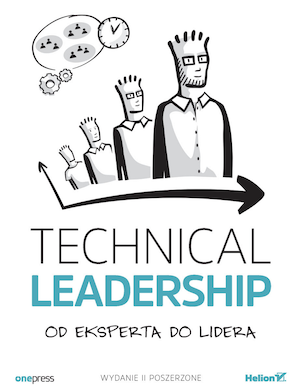Technical leadership
TRAINING DESCRIPTION
Pricing: 3000 PLN (0% VAT)
Provided by: Mariusz Sieraczkiewicz
Order dedicated training
This training is about the role of a leader. It covers who can be a good leader and how to achieve that with only technical experience. It also discusses how to divide time between technical and non-technical tasks, and how to build a team that others want to belong to. The training focuses on the soft skills of leadership, rather than project management practices.
This training is for individuals who have been or will soon become team leaders in software development projects. It will also provide valuable insights for experienced leaders who are looking for answers to specific questions about their role that they haven’t yet found. Most importantly, it is for those who want to develop a leadership style that inspires team members to follow them and stay highly motivated. We invite Technical Leaders, Team Leaders, and those who will be taking on a leadership role in the future.

BASIC PROGRAM
- Module 1: The Role of the Technical Leader
- Module 2: Self and Other Motivation
- Module 3: People
- Module 4: Team
- Module 5: Leadership Competencies
DETAILED PROGRAM
Module 1: The Role of the Technical Leader
- What are the responsibilities of a technical leader according to Technical Leadership?
- Rules and their application
- Major leadership sins and 8 commandments
- Technical leader – hero or caretaker?
- Types of leadership
- Leader vs. Expert
- What is the difference?
- How to reconcile them?
- But I didn’t do much today – how to balance technical work and coordinating others?
Module 2: Self and Other Motivation
- What motivates us?
- Motivation model
- Motivation theories
- What motivates programmers?
- Tools
- Motivation analysis
- Balancing the environment
- Restoring motivation
- Quantitative metrics
- Drive – key factors in creating a motivating environment
- The role and development of self-awareness
- How to ignite unstoppable energy in yourself?
Module 3: People
- Why don’t others want help?
- Coaching as a leadership tool
- The coaching model and its practical application
- Clarification
- Current state analysis
- Target state analysis
- Solution finding
- Feedback
- What role does it play in motivation?
- Best practices and common mistakes
- Addressing issues directly
- Difficult conversations
- When people stop listening to us
- Common mistakes during conversations
- Steps to clear communication
Module 4: Team
- Vision – why is it necessary?
- Implementing vision into practice
- Setting team rules
- Retrospectives
- Process analysis
- Knowledge sharing within the team
- Engagement through enriching the environment
- Different forms of leader authority in the team
Module 5: Leadership Competencies
- Ability to lead through technical and organizational changes
- Organizing your own work
- Leading effective meetings
- How to resolve conflicts?
- What are you really trying to say? – Understanding the intentions of your conversation partner